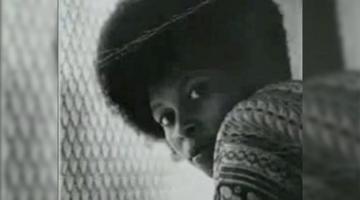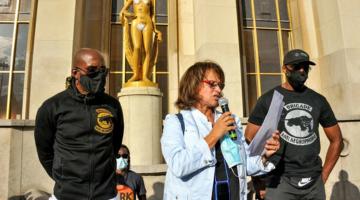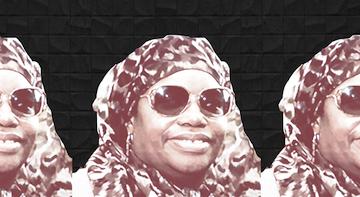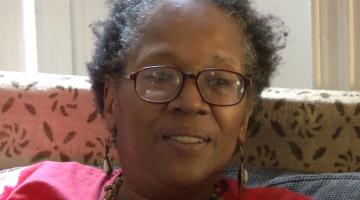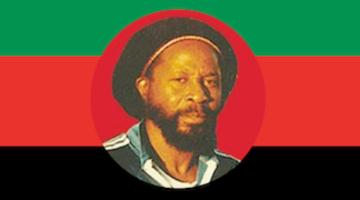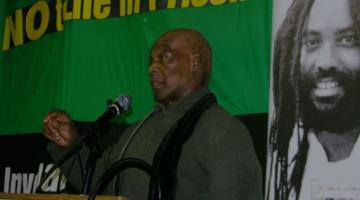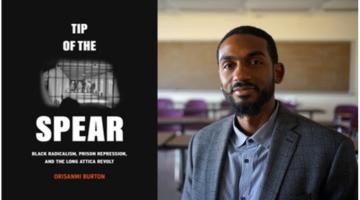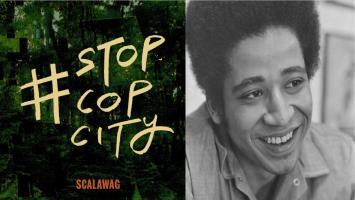A letter commemorating George Jackson speaks to the origins of Black August.
Black August was created to mark the 1971 assassination of George Jackson, and to commemorate and reflect on the values and knowledge that Jackson modeled for his fellow prisoners.
In 1979, a group of prisoners incarcerated in California’s San Quentin State Prison declared the month of August “Black August” as a tribute to Jackson, but also to his brother Jonathan (murdered on August 7, 1970) and to Jeffrey “Khatari ” Gaulden (killed in San Quentin on August 1, 1978). Black August was also meant as an expression of solidarity with other Black political prisoners, including the Pontiac 17 , Earnest Graham and Eugene Allen, the Reidsville Brothers, and Imani Harris – all of whom faced life sentences or the death penalty.
The San Quentin prisoners proposed Black August as a month of sacrifice and self-discipline. It was also a means towards building up the Black prison community while strengthening the Black freedom struggle. Black August included fasting from sun-up to sunset, a refusal of television, radio, and canteen privileges, and a focus on intense political study. The incarcerated men also demanded the abolition of the death penalty, the repeal of the 13th Amendment, and a halt to new prison construction in California. They also called for the California Department of Corrections to end restrictions on visitation rights, while calling out the department for its own participation in white supremacist attacks on Black prisoners by the Aryan Brotherhood, Nazis, and the Ku Klux Klan. Those inside San Quentin were supported by those inside; on August 25 , 1979, a group of 150 supporters staged a solidarity march and rally outside the prison.
Every August, The Black Agenda Review has published historical statements, manifestos, and commentaries from Black political prisoners in the United States and around the world. We began with two statements on Black August written by San Quentin inmates in 1979 and published in the radical prisoner-support journal, Arm the Spirit, and have followed by reprinting: The Attica Liberation Faction Manifesto of Demands and Anti-Depression Platform, 1971; an essay and petition on the massacre at Attica published in the The Black Panther Intercommunal News Service; William L. Patterson’s Racial Genocide: The Case of the Martinsville Seven; Assata Shakur’s commentary Women in Prison: How We Are, Assata Shakur; and a collective statement from the Marion Political Collecive.
Below, we reprint a letter commemorating George Jackson, collectively written by the Seventh of August Movement in 1971. It is a powerful and beautiful tribute to the man whose life exemplified the principles of Black August, and whose death inspired its commemoration.
For George
The Seventh of August Movement
This message is from the Seventh of August Movement. It has no names on it, because they are all still prisoners in California’s maximum security institutions. They are cellmates, the comrades, the students and the followers of George Lester Jackson. The brother who sent the message knew comrade George for many years, inside the prisons.
Comrades, Brothers and Sisters:
There are many of us assembled here today who knew our comrade, George Lester Jackson, directly or indirectly. But only those who really knew him can begin to imagine the egregious loss that fascist America has once again bestowed upon us.
Speaking for myself and countless others who society terms “convicts,” he was many things. First and above all, he was a man. Not in the abstract sense of a man, but in the concrete sense; George was a dear, not in the abstract sense but in the concrete; George was a love, not in the context that we understand it, but in the remote ways that we wish it would be: George was and always will be to us, the members of this group, the epitome of manhood.
George gave us our manhood, showed us our creed through his everyday actions and teachings. For many years George was forced, out of historical necessity, to carry the load of those comrades much weaker than he. He was a man who could not stand to see wrong perpetrated by the unjust upon helpless and defenseless people. This is one of the reasons why he was singled out to be murdered by California’s Dept. of Corrections.
In the year 1961, when racism in the California penal institutions was at its zenith, countless Blacks were dying at the hands of the neo-Nazis. It was George who taught us how to defend ourselves. It was George who founded the so-called “Capone Gang,” which later came to be called the 7th of August Movement in honor of Jonathan Peter Jakcons’s siege of the Marin Civic Center.
George taught us that freedom came out of the barrel of a gun (but in our particular case, from the point of a knife), and since we were a minority, mostly uneducated, we had no politics, and very few of us could read or write. But George was a natural-born teacher. He taught us to read, he taught us to write, and our basic arithmetic; he taught us to form collectives within the prions. George’s mother, who was always at his side, used to send him money each and every month. There were many of us who had no families, consequently we had no funds. But through the collective it was possible for everyone to have something.
George taught us that we were Black and that all that really meant was our culture was different from the Europeans’, and that we came from Africa and were descendants of kings.
He taught us that if we were to walk with our heads unlifted, in reality, it would be one and the same as denying our heritage.
George explained that we were a minority. He taught us the mechanics of slavery, capitalism and imperialism on a level where we all could understand it. In this way it was possible for him to revolutionize the consciousness of countless Blacks.
George taught that all people could live together. He constructed programs starting in around 1966, which were composed of Blacks, Browns and whites. He attempted to use the Marxist world outlook of historical and dialectical materialism to transcend racism. He pointed out to us the commonality of our circumstances and that the same pig that had a boot up a Black’s ass, just so happened to be the same identical fascist that had the same boot up this white guy’s ass. This basic truism, along with hours and years of teaching, is the cause and the birth of the present prison movement.
George grew through the years. When we were cell-partners, he would read as much as 16 hours a day. And he had a way with words and books, where he could take the most complex matters and break them down to the simplest form. George, unlike most university intellectuals, was outgoing and longed—sometimes demanded — to share a new found truth. This is why he’s a leader.
The prison authorities started to witness something new among prisoners: the kind of man who, despite a seventh-grade point average on his achievement tests when he entered prisons, could use words and etymologies I a context to defend himself in disciplinary hearings: the kind of man who could finally object to working in the cotton mills, furniture factories and shoe shops for the meager sum of 3 cents an hour. George taught us how to organize strikes, he set out the guidelines for lists of demands, explaining to the prisoners that we were part of the working class and consequently we were entitled to at least minimum wage.
Naturally the idea of prisoners running around talking about minimum wages, striking and disrupting Pat Brown's and then Ronald Reagan’s slave wage system, just could not be tolerated. And it was at this point that George Lester Jackson was singled out to be murdered.
This is the creed of the 7th of August Movement:
Ulysses’ Vow
If ever I should break my stride,
Or falter at my comrade’s side,
This oath will kill me!
If ever my word should prove untrue,
Should I betray the many or you few,
This oath will kill me!
Should I be slow to make a stand,
Or show fear before the sandman,
This oath will kill me!
Should I misuse the people’s trust,
Should I submit ever to greed or lust,
This oath will kill me!
Should I grow lax in discipline,
In times of strife, refuse my hand
This oath will surely kill me!
When Fidel Castro, who was later to lead the Cuban people to freedom, was captured by the Batista forces and brought to trial, he uttered a statement that went down in history, known as “History will Absolve me.” In that speech to the fascist court, he spoke of the revolutionaries in the prisons; and we adopt his words as our own:
“We were never permitted to talk or remain in the same prisons; yet we were in full accord as to how to act. When men carry the same ideals in their hearts, nothing can keep them isolated, neither the walls of prisons nor the sod of cemeteries, for a single memory, a single spirit, a single idea, a single consciousness, a single dignity, will sustain them all.”
From Prisoners of America.
“For George, From Inside,” Berkeley Tribe, 6 no. 10, September 3-9, 1971

